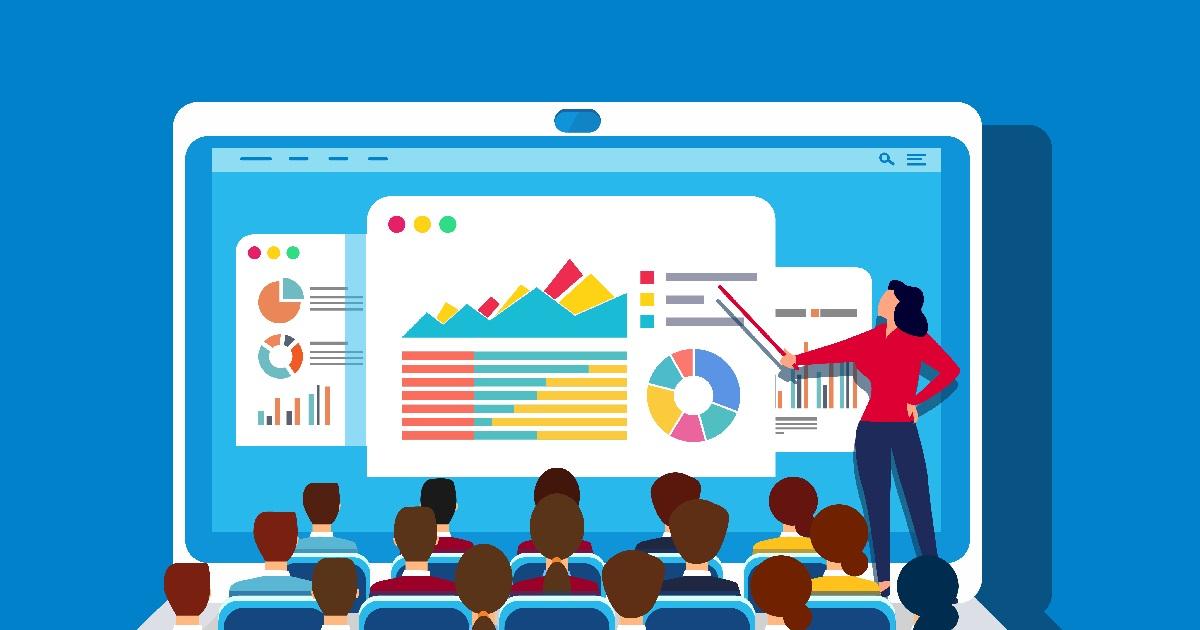
Education Technology, Corporate Education and Training, Continuing Education
PR Newswire | January 31, 2024
Elsmere Education, a leading force in online program enablement, announces the official launch of Education Process as a Service (EPaaS). This innovative ecosystem empowers universities to achieve smart growth in their online programs by streamlining operations, maximizing ROI, and catering to the unique needs of non-traditional students.
EPaaS encompasses Elsmere Education's proven business processes tailored for an enriched student journey supported by dynamic communication strategies. Our solutions are powered by a curated technology ecosystem that includes omnichannel marketing capabilities and is designed to integrate with a wide range of existing campus systems.
Built on Feedback, Designed for Growth
The subscription-based model empowers universities to bring essential services in-house efficiently, leveraging a comprehensive suite of 40+ technologies through a single procurement process. EPaaS is intentionally designed to streamline and optimize the entire student lifecycle, specifically catering to the needs of non-traditional and online adult learners.
Dan Janick, CEO of Elsmere Education, states: "EPaaS is a game-changer in terms of ROI. We've created a flexible, scalable solution that gives universities complete control and empowers internal teams to be more agile. It's the ultimate enablement model for driving efficiencies, increasing enrollment, and boosting student retention."
Addressing Common Challenges
Elsmere Education recognizes the challenges faced by university leaders in meeting the unique needs of non-traditional students and online adult learners. EPaaS addresses common challenges, including reliance on campus systems built for traditional students, lack of a CRM platform, and manual workflows hindering efficient student journey execution and monitoring.
EPaaS Delivers Tangible Results
360-degree business intelligence: Make data-driven decisions for improved performance across the student lifecycle.
Real-time marketing metrics: Optimize your marketing efforts and maximize enrollment yield.
Increased staff productivity: Streamline processes and free up your team to focus on student success.
Elsmere Education is your partner in online education success. Contact us today to learn how EPaaS can transform your institution.
Read More

Education Technology, Talent Development, Online Education
PR Newswire | January 30, 2024
IXL, the personalized learning platform used by 15 million students worldwide, has announced an extension of its partnership with Bridge2Rwanda (B2R), a nonprofit dedicated to creating global education opportunities for high-achieving African students. B2R educators will continue leveraging IXL's award-winning platform to deliver targeted English language arts (ELA) instruction, helping learners build and master literacy skills essential for securing university scholarships. In total, B2R has used IXL to support 500 students across eight different training programs since the partnership began.
Despite encouraging improvements in literacy rates, limited access to resources and a nascent reading culture pose significant challenges to educational achievement in Rwanda. Recognizing the pivotal role education plays in enhancing socioeconomic outcomes, Bridge2Rwanda was established in 2007 to empower Rwandan high school students with high-quality reading and writing opportunities. B2R's ultimate goal is to build a thriving community of well-educated African leaders who will accelerate their nations' growth and improve the lives of others.
B2R began using IXL Language Arts in 2019 to support the English language development of 30 high-achieving scholars from Rwanda, the Democratic Republic of the Congo, South Sudan, and Burundi. In 2020, the nonprofit relied on IXL's all-inclusive platform to ensure that its English language learners (ELLs) developed essential ELA skills during distance learning. After two years of an impactful partnership, B2R made IXL an integral component of its new intensive English training and college preparatory program, Isomo Academy. The inaugural class of 120 Isomo Academy scholars quickly embraced IXL's tailored support, built-in instructional resources, and engaging learning opportunities.
During the first week of Isomo Academy's eight-week training program, educators use IXL's adaptive assessment, the Real-Time Diagnostic, to pinpoint each student's English proficiency level, helping them understand individual strengths and areas for improvement. Based on these insights, the diagnostic then generates personalized skill recommendations to challenge and support learners at the right level. Additionally, B2R educators use the diagnostic to track student growth each week to ensure that students are progressing and mastering essential ELA concepts.
Bridge2Rwanda educators also rely on IXL's comprehensive curriculum to help students build the skills that they need to become strong communicators. Each day at Isomo Academy, students take writing and reading classes that are paired with intensive language and communication seminars. Additionally, students work on IXL skills that align with their classroom lessons. The combined approach allows educators to engage students at their individual levels, assign homework, and differentiate learning beyond the school day.
"IXL bursts bottlenecks for Bridge2Rwanda scholars by eliminating language barriers," said Luke Dreiling, Lead English Teacher, Bridge2Rwanda. "This enables them to excel in their studies, advance their careers, and contribute significantly to the growth of African communities."
"Bridge2Rwanda's dedication to expanding educational opportunities for young African students is commendable. We are excited to continue equipping even more bright and ambitious learners with the tools they need to confidently pursue their dreams on a global scale," said Paul Mishkin, CEO of IXL Learning. "At IXL, we are committed to leveraging education as an instrument of empowerment to break down language barriers and ensure all students have the opportunity to thrive."
IXL's impact on English language learners
IXL Language Arts gives teachers a systematic way to troubleshoot each student's unique reading and writing roadblocks, and put them on the path to success: Among schools with a high percentage of ELLs, research demonstrates that those using IXL outperformed non-IXL schools on Smarter Balanced Assessments in ELA by as much as seven percentile points.
IXL's comprehensive curriculum provides more than 2,400 adaptive skills that span early literacy, reading comprehension, grammar, vocabulary, and advanced concepts, such as persuasive writing. Each IXL skill is adaptive, ensuring that ELLs feel confident that they are perfectly challenged and supported at the right level when developing fluency.
IXL's adaptive assessment, the Real-Time Diagnostic, pinpoints students' grade-level proficiency in key ELA strands, and generates targeted next steps to help students grow from where they are. As English language learners progress, these personalized recommendations stay up-to-date, ensuring that they always have a clear path toward mastering ELA concepts.
As students learn and practice, IXL provides in-the-moment support and resources for self-remediation. For example, video tutorials guide learners through the building blocks of reading, writing, and grammar to provide additional support during learning and independent practice. If a student answers a problem incorrectly, IXL provides a step-by-step explanation of the right answer so that students can learn from their mistake and solidify their knowledge of that skill.
Educators also rely on insights from IXL Analytics to track student progress, monitor readiness for exams, and differentiate instruction to fill knowledge gaps. Up-to-date reports help teachers uncover areas of challenge for each student and identify patterns in mistakes in order to provide targeted reteaching.
Read More

Education Technology, Online Education, Continuing Education
PR Newswire | February 01, 2024
2U, Inc, the company behind global online learning platform edX, today announced a new partnership with the University of Surrey to launch and support the delivery of online master's degrees and online professional certificate programs. An initial five online degree programs will welcome students in 2024, with a portfolio of at least 15 master's degrees and at least 15 professional certificate programs being delivered by 2026. This will expand access to this highly ranked UK university for students worldwide.
Surrey's partnership with 2U will deliver Surrey Online Learning: an acceleration and transformation of the university's provision of online learning. 2U's expertise will help Surrey establish a scalable model and quickly expand its digital capabilities to worldwide audiences. The collaboration aligns with the university's mission to expand access to life-changing education and personal and professional success.
"We're partnering with 2U and their edX platform to accelerate Surrey Online Learning provision," said Professor Tim Dunne, Provost and Senior Vice-President at the University of Surrey. "The University of Surrey has global strength in innovation and research, and is renowned for being one of the best universities in the UK for delivering excellence in teaching and employability. Through Surrey Online Learning, we will offer flexible and affordable educational pathways that are compatible with and relevant to modern careers, combining accessibility with strong student outcomes."
Surrey's suite of online degrees will build on the success of its on-campus programs, with the online curriculum developed in partnership with LearningMate. The first five degrees expected to launch in 2024 will be in the areas of artificial intelligence, business, psychology, marketing, and sustainability. The professional certificate programs, which will focus on technology, healthcare, business, communications technologies, and sustainability, will provide learners with an opportunity to build and enhance critical professional skills on their way to determining if a full degree in a corresponding subject is part of their educational journey.
"2U prides itself in being a digital transformation partner that can support strategic long-term thinking, accelerate innovation, and help drive positive student outcomes across new formats and modalities," said Andrew Hermalyn, President of the Degree Program Segment at 2U. "The University of Surrey has major ambitions to expand its online learning capabilities, and we are honored to be their partner to help build their online presence from the ground up."
"LearningMate is honored to partner with the University of Surrey on its transformative online learning initiative in collaboration with 2U. We're excited to contribute to the development of cutting-edge online master's degrees and professional certificate programs that align with Surrey's commitment to excellence," said Prasad Mohare, Senior Vice President at LearningMate. "Our focus on innovation and accessibility will be showcased in the initial offerings. LearningMate is dedicated to supporting Surrey in expanding access to impactful, career-relevant learning opportunities in the evolving landscape of online education."
Today's announcement builds on the continued demand for 2U's flexible degree partnership model, which gives universities the choice of selecting different bundles of services according to their needs.
Read More